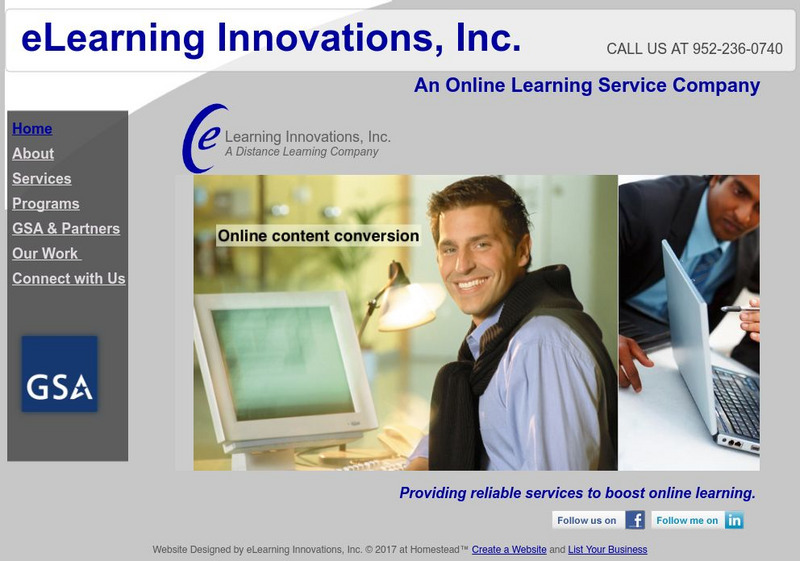Concord Consortium
Concord Consortium What Are the Factors That Affect How Strongly Objects Interact With Each Other?
Activity 2 of this module explains How do factors like distance and amount of charge affect interactions between objects? The activity investigates the effect that the distance between two charged objects has on the strength of the...
Elias Saab
Math Drills: Distance, Speed, and Time Quiz
An interactive quiz which provides students with a word problem involving distance, speed, and/or time. Students input their solution and have the program evaluate it. Hints are available if the student needs them, and explanations are...
Discovery Education
Discovery Education: Science of Everyday Life: Interaction at a Distance [Pdf]
An experiment where students investigate the strength of magnets. This site includes a lesson plan with both teacher and student information for completing the experiment.
Other
Global Schoolhouse: Harnessing the Power of the Web
This online tutorial shows K-12 teachers how to harness the power of the World Wide Web for classroom use, and in particular for interaction, collaboration, distance education, cultural understanding and cooperative research -- with...
Concord Consortium
Concord Consortium: Stem Resources: Seeing Motion
With this interactive tool and the use of a motion sensor, students will track their own motion and, as they collect data in several experiments, they will plot it on a distance-time graph. After completing the three experiments, they...
NASA
Nasa Smartskies: Line Up With Math: Math Based Decisions in Air Traffic Control
In association with NASA, LineUp With Math presents problem sets which 'enable students to explore and apply decision-making and reasoning skills, specifically to resolve distance-rate-time conflicts in air traffic control'. An...
Other
Sunaeon: Solar System Scope
Experience the solar system as you've never seen it before; up close and personal. Visit each planet by clicking on it, then selecting the play button to track its rotations through the calendar year. Watch the constellations move...
NASA
Nasa: Mars Odyssey
Within the rocky landscape of Mars you will find the Mariner Valley. This expansive landform is as deep as the Grand Canyon and encompasses an area as wide as the distance between New York and Los Angeles.
PBS
Pbs Learning Media: How Big Is Our Universe?
This interactive resource from Harvard Smithsonian Center for Astrophysics uses images and activities to understand the scope and scale of our universe. Featured are technologies used by generations of explorers.
PBS
Pbs Learning Media: Virus Information and Prevention
What are viruses and how do they spread? Find resources for students of all ages that explore the nature of viruses, how they are transmitted, and the healthy habits we can all engage in to prevent their spread. From the common cold to...
PBS
Pbs Learning Media: Let's Learn
This collection of resources for children ages 3-8 are drawn from the public television series Let's Learn, a partnership between the WNET Group and the New York City Department of Education. Let's Learn aims to provide our young...
CK-12 Foundation
Ck 12: Math Grade 4
Browse resources related to fourth-grade math standards. Click on a topic for interactive lessons, videos, and extra practice.
CK-12 Foundation
Ck 12: Math Grade 5
Browse resources related to fifth-grade math standards. Click on a topic for interactive lessons, videos, and extra practice.
Other
E Learning Innovations: Teletraining Institute
The Teletraining Institute offers several online degrees. A course catalog is provided on this page as well.
PBS
Pbs: Using the Pythagorean Theorem on the Cartesian Graph
In this interactive, students use logic and mathematical skill to place animals at the correct points on a Cartesian graph representing the cardinal directions. Then, they use the Pythagorean theorem to determine the distances between...
PBS
Pbs Learning Media: Pre K 12 Resources for New School Routines: Collection
As teachers, students, and families enter an uncertain school year with new routines, both in-person and virtual, PBS LearningMedia offers this special collection of flexible resources to support learning from anywhere. Find videos,...
PBS
Pbs Learning Media: Bringing the Universe to America's Classrooms: Waves: Light Collection
Observe the appearance of objects under different conditions to find that objects are only visible when illuminated by light, explore how light interacts with different materials, and develop a code that uses light to communicate across...
Physics Classroom
The Physics Classroom: Newton's Laws: The Meaning of Force
This interactive physics tutorial introduces the basic meaning of force, including contact and non-contact forces.
Beacon Learning Center
Beacon Learning Center: Are We There Yet?
An interactive web lesson teaches students about estimating units of measurement. It also offers practice questions to test students' understanding of the skill.
Physics Classroom
The Physics Classroom: Newton's Laws: Types of Forces
This interactive tutorial gives an in-depth introduction to a variety of forces; both contact, and non-contact.
Math Open Reference
Math Open Reference: Perimeter of a Rectangle
Learn about the perimeter of a rectangle with this handy reference guide. Provides a detailed definition, examples, and interactive activities that enhance further explanation. Includes links to related topics.
Math Open Reference
Math Open Reference: Perimeter of a Polygon
Learn about the perimeter of a polygon with this resource which offers detailed explanations, examples, and an interactive. Subjects covered include how to find the perimeter. Links to related topics.
PBS
Pbs.org: Jumping on the Bitmoji Classroom Train
This blog focuses on the Bitmoji classroom craze that is spreading all across the nation. Creating an interactive virtual classroom has become one of the many ways educators are trying to create content for their online tutorials,...
Other
Easyphysics: Chapter 2 Velocity
Learners investigate velocity. Some topics examined are average velocity, distance, and displacement. The resource includes example problems with solutions, interactive graphs, and a chapter quiz.








